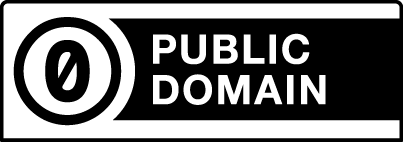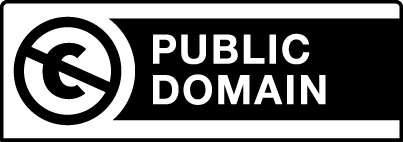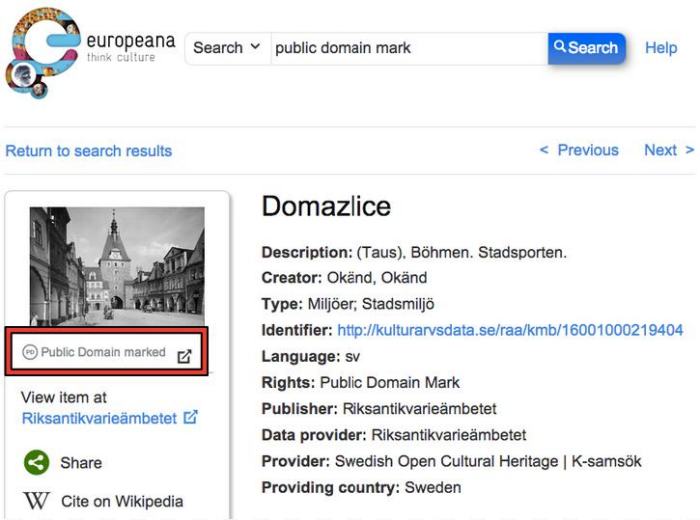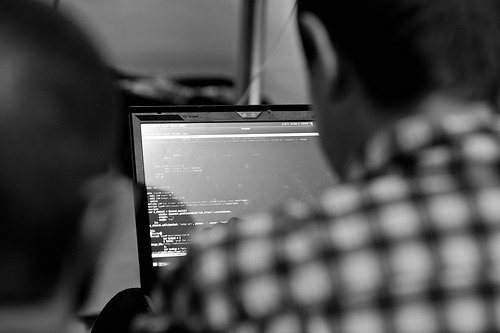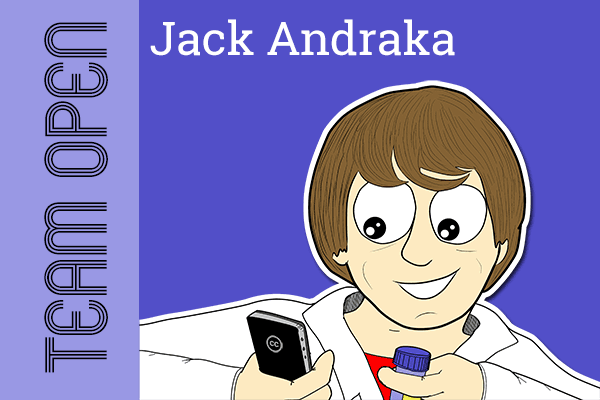Copyright Week: Tools and policies for building and defending a robust public domain
mardi 14 janvier 2014 à 16:07The public domain is the DNA of creativity. Whereby current copyright law requires permission in order to use a work, the public domain is a copyright-free zone whereby anyone can use the work for any purpose without restriction under copyright law. One way works rise into the public domain is when the copyright protection term expires. Over the years, copyright terms have been extended again and again, making it really difficult for creative works to enter the public domain. While most early copyright terms lasted only a few years, a majority of copyright terms today last for the duration of the life of the author + 50-100 years. Increasing copyright terms have stymied creativity, drastically raised the prices of books, and exacerbated the orphan works problem (where authors of works can no longer be located to ask permission to use a work).
But the extremely long term of copyright is not the only problem for the public domain. The contours of copyright law grant certain rights to the author automatically, and without any necessary action from the creator. This seems like a reasonable thing to do for some creators, but it doesn’t support those who simply wish to make their content freely available, or who wish to opt out of copyright in the first place.
Tools
Authors should be able to say what they want to do with their creativity. The Creative Commons license suite provides a flexible way for creators to indicate the rights they wish to grant and those they wish to retain. Creators can use the CC licenses, which are a nonexclusive license that relies on existing copyright law for enforceability. And the CC license lasts for as long as the copyright term, after which the work will then be in the public domain. The CC licenses help to lower transaction costs by communicating certain rights in advance. That way, users don’t have to hunt down authors to get their permission to use a work. The permission is granted in advance by the author, so long as the user follows the terms of the license.
Another way for works to enter the public domain is when creators proactively waive their copyrights–they can place works in the public domain before the copyright term is over. Creative Commons has developed the CC0 (read “CC Zero”) Public Domain Dedication tool to allow authors to do this. The CC0 tool is used by authors who want to release all copyrights to their work and fully break down all barriers to downstream reuse.
CC0 enables scientists, educators, artists and other creators and owners of copyright- or database-protected content to waive those interests in their works and thereby place them as completely as possible in the public domain, so that others may freely build upon, enhance and reuse the works for any purposes without restriction under copyright or database law.
The CC0 Public Domain Dedication is used widely by creators to waive all copyright and put their content in the worldwide public domain. It is used by open access publisher BioMed Central, who has adopted a policy whereby it now requires that data supporting its published articles be released into the public domain using CC0. Europeana uses CC0 to describe 30 million cultural objects in its massive collection. And even video game creative assets are being released into the public domain under CC0. And there are many more cases where creators and institutions in all fields are releasing their cultural, scientific, and educational works into the public domain.
CC0 allows authors to place their work into the public domain prior to the expiration of the copyright term. But what about works that are already in the public domain, such as really old works where it’s clear that the copyright has expired? To help label those works as already part of the public domain, CC has developed the Public Domain Mark.
[The] Public Domain Mark enables works that are no longer restricted by copyright to be marked as such in a standard and simple way, making them easily discoverable and available to others.
One particularly interesting use of the Public Domain Mark is from Europeana. Whereas Europeana uses the CC0 tool to dedicate to the public domain the metadata that describes cultural works (so anyone can use it to create interesting representations or applications), they use the Public Domain Mark to signal which of the works in their digital collection (e.g. the very old paintings, sculpture, etc.) are in the public domain already because the copyright term has clearly expired. In this way, it’s easy for users to filter the catalog to view works that are already in the public domain and which may be used for any purpose because their copyrights have expired.
Advocacy & policy change
Even with tools making it easier for authors to communicate the rights they want attached (or not) to the works they create, we need to support public policy efforts to increase access to the public domain. One such effort is led by the International Communia Association, whose mission is “to foster, strengthen and enrich the public domain.” Communia originally developed the Public Domain Manifesto (which you can sign here), and also has generated 14 policy recommendations that lay out ways that the public domain should be supported through public policy changes and community action. Recommendations include reducing the term of copyright protection overall, making the process of identifying public domain works simpler by harmonizing rules of copyright duration and territoriality, and mandating that digital reproductions of works in the public domain should also belong to the public domain.
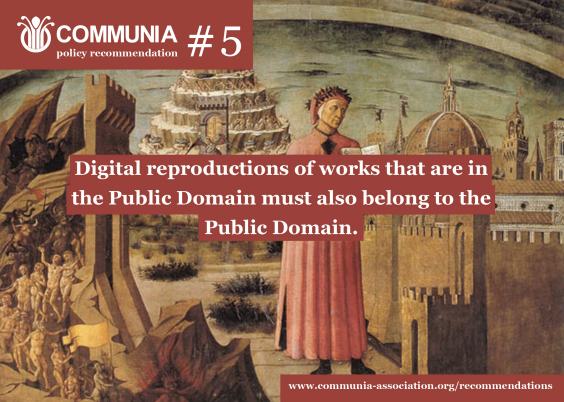
Another way to support the public domain is to highlight and champion community-generated norms. For instance, Creative Commons has been a longtime supporter of the Panton Principles, which advocates that scientific data should be made available in the public domain.
By open data in science we mean that it is freely available on the public internet permitting any user to download, copy, analyse, re-process, pass them to software or use them for any other purpose without financial, legal, or technical barriers other than those inseparable from gaining access to the internet itself. To this end data related to published science should be explicitly placed in the public domain.
We can also support the development of public domain policies where they make the most sense. Creative Commons and other groups have provided feedback to policy consultations on a variety of areas whereby the public could benefit from the adoption of public domain policies. For example, in the recent consultation in the European Union on public sector information (PSI), we argued that there should be no conditions attached to the re-use of PSI.
The best case scenario would be for public sector information to be in the public domain, exempt from copyright protection altogether by amending national copyright laws. If it’s not possible to pass laws granting positive re-use rights to PSI without copyright attached, public sector bodies should use the CC0 Public Domain Dedication (CC0) to place public data into the worldwide public domain to ensure unrestricted re-use.
In the United States, federal agencies are determining how they will support the President’s Directive requiring public access to federally funded research and data. In addition, the White House itself is trying to figure out how to guide implementation of another Executive Order on open data. We said that any data generated using federal monies should be marked clearly as being in the public domain (possibly using a tool like CC0) and immediately deposited in a scientific data repository. And the US Federal Government has heard from other public domain advocates for government information, who’ve drawn up the Best Practices Language for Making Data “License-Free.”
Building and defending a robust public domain requires work on multiple fronts–from the ongoing development and support of tools that can grow the pool of creative works in the public domain–to the active participation in policy change and copyright reform. While content in the public domain is owned by no one, the responsibility for strengthening this absolutely crucial resource should be shared by all who care about the future of creativity.

